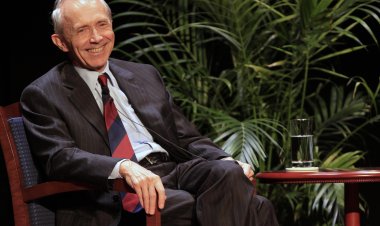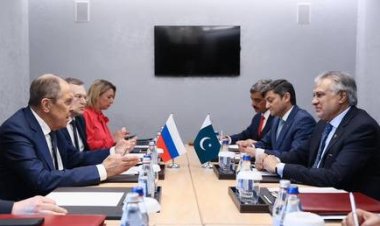Sectors Face Obstacles in Securing Exemptions from Trump's Tariffs
The administration has not established a formal procedure for obtaining exemptions from tariffs, leaving businesses uncertain about their chances of receiving relief.

However, the lack of a formal process for submitting requests and the absence of a direct channel to the key decision-maker has left many in the business sector feeling sidelined. Those within the business community who have connections to the White House believe the situation is unlikely to improve until a particular industry can convincingly demonstrate a crisis to the president.
“There’s only one person that can really authorize that exemption and that’s the president,” noted a business representative with close ties to the Trump administration, who spoke on the condition of anonymity. “So if you’re not a company that can whisper in the president’s ear or make the trip to Mar-a-Lago and do it persuasively, then you’re sort of frozen out of the process for now.”
Despite previously insisting on no special treatment amidst his trade war, Trump exempted a significant portion of electronic products from tariffs. Meanwhile, other sectors have not experienced similar successes in securing exemptions.
This inconsistency in exemptions underscores the growing tension surrounding Trump’s trade policies. A strict, across-the-board tariff on major trading partners risks increasing inflation and potentially pushing the economy into a recession. On the other hand, granting relief to multiple industries could undermine Trump’s aims of restoring manufacturing jobs.
“You can’t give in to existing businesses or protect consumers at the same time that you think you’re going to reshore American manufacturing,” stated Derek Scissors, a senior fellow at the American Enterprise Institute and chief economist of the China Beige Book.
For the White House, the situation presents a delicate dilemma. Trump and his key trade advisors have consistently emphasized that allowing exemptions could undermine the effectiveness of tariff increases.
“If you have Swiss cheese in the action, it can undermine the overall point,” U.S. Trade Representative Jamieson Greer told the Senate Finance Committee last week. “Which is to get rid of the deficit and achieve reciprocity.”
The White House has insisted that the exemption from its 125 percent tariff on China, announced by Customs and Border Protection last Friday evening, is neither a rollback nor an exemption. They referenced that the electronic products still face a 20 percent tariff related to Trump’s concerns over China’s fentanyl production, and highlighted that an ongoing national security investigation into semiconductors may result in additional tariffs on electronics. Kush Desai, a spokesperson for the White House, described the electronic carve-out as a “nuanced, strategic approach.”
“This approach will build on the hundreds of billions of dollars’ worth of electronics and semiconductor investment commitments that the administration has secured without letting China exploit loopholes to keep undermining American industries and workers,” Desai added.
However, the broad exemption for various products — noting that the U.S. imported 81 percent of its smartphones from China in 2024, according to World Trade Organization data — instilled some hope among businesses for further relief as the administration seeks to stabilize financial markets that were shaky following the global tariff enforcement on April 9.
"I think we got a little excited when we all saw the smartphone, some of the electronic exemptions, but then they kind of walked that back pretty quickly,” shared an anonymous representative from the agricultural sector.
A Republican lobbyist, also speaking anonymously regarding private discussions, indicated that certain businesses — especially those reliant on materials unavailable or unproducible in the U.S. — believed they had convinced White House staff of the need for temporary tariff exemptions to mitigate the impact on their sectors. However, those requests were ultimately turned down by Trump or his close advisors.
Yet, the president has indicated that there may be at least one additional tariff exemption forthcoming — for automakers. “They need a little bit of time” to produce cars and car parts domestically, he stated on Monday at the White House.
Automakers, facing a 25 percent tariff on vehicles since March 26 and impending additional tariffs on auto parts effective May, have been lobbying the administration to exempt certain components, particularly those in compliance with the USMCA.
Trump's comments inspired optimism among industry advocates. Former Missouri Governor Matt Blunt, president of the American Automotive Policy Council, which represents major manufacturers like Ford, General Motors, and Stellantis, remarked, “There is increasing awareness that broad tariffs on parts could undermine our shared goal of building a thriving and growing American auto industry, and that many of these supply chain transitions will take time.”
American auto manufacturers have seen some success in advocating for exemptions to Trump’s tariffs. Just one day after the 25 percent duties on goods from Canada and Mexico took effect last month, the White House suspended tariffs on products compliant with the North American trade agreement negotiated during Trump’s first term. This was a significant reprieve for the auto industry, given the highly integrated nature of North America’s auto supply chain, with Mexico and Canada being the largest exporters of auto parts to the U.S. Additionally, the pause included an exemption for Canadian potash exports, which is crucial for fertilizers, marking a win for the agricultural sector.
Conversely, the agriculture industry has struggled more to obtain protections from the consequences of the trade war. Food industry representatives seeking exemptions for imports of products that cannot be produced domestically due to climate or labeling factors — such as certain produce, spices, and alcohol — have been requesting relief for months. Nonetheless, the administration has largely dismissed their pleas, urging them instead to pressure other nations against imposing retaliatory tariffs, according to sources familiar with the negotiations who spoke anonymously.
Major agricultural organizations like the American Farm Bureau Federation, along with lawmakers from agriculture-heavy states, are advocating for the administration to prepare assistance for farmers impacted by retaliatory tariffs. In Trump’s first term, farmers received $28 billion in federal aid to offset the losses resulting from the trade war with China. This time, farmers are seeking significantly more support, given the higher tariffs and the broader array of countries affected.
Other consumer goods manufacturers that greatly rely on Chinese imports — including clothing retailers, toy makers, and personal care product manufacturers — have also requested exemptions but have made minimal progress with the administration, which currently lacks a dedicated point person for these matters.
"There is no process for exemptions… A lot of companies are taking an all-of-the-above approach,” remarked another industry representative, who requested anonymity to speak freely, indicating that many companies are reaching out to lawmakers and lower-ranking U.S. officials. “And I think that it is reflective of the administration's approach, that this is not just siloed in one office.”
As it stands, the ultimate outcome remains unclear. The White House asserted that Trump remains committed to shielding American manufacturing from malign foreign competitors, like China, while also claiming to be receptive to negotiations, particularly with domestic industries that voice concerns about the irreversible detriment of the tariffs.
“The point the president was making is flexibility,” White House press secretary Karoline Leavitt responded when asked about potential auto exemptions. “And he has flexibility when it comes to negotiations and talks.”
Camille Lefevre for TROIB News
Find more stories on Business, Economy and Finance in TROIB business












